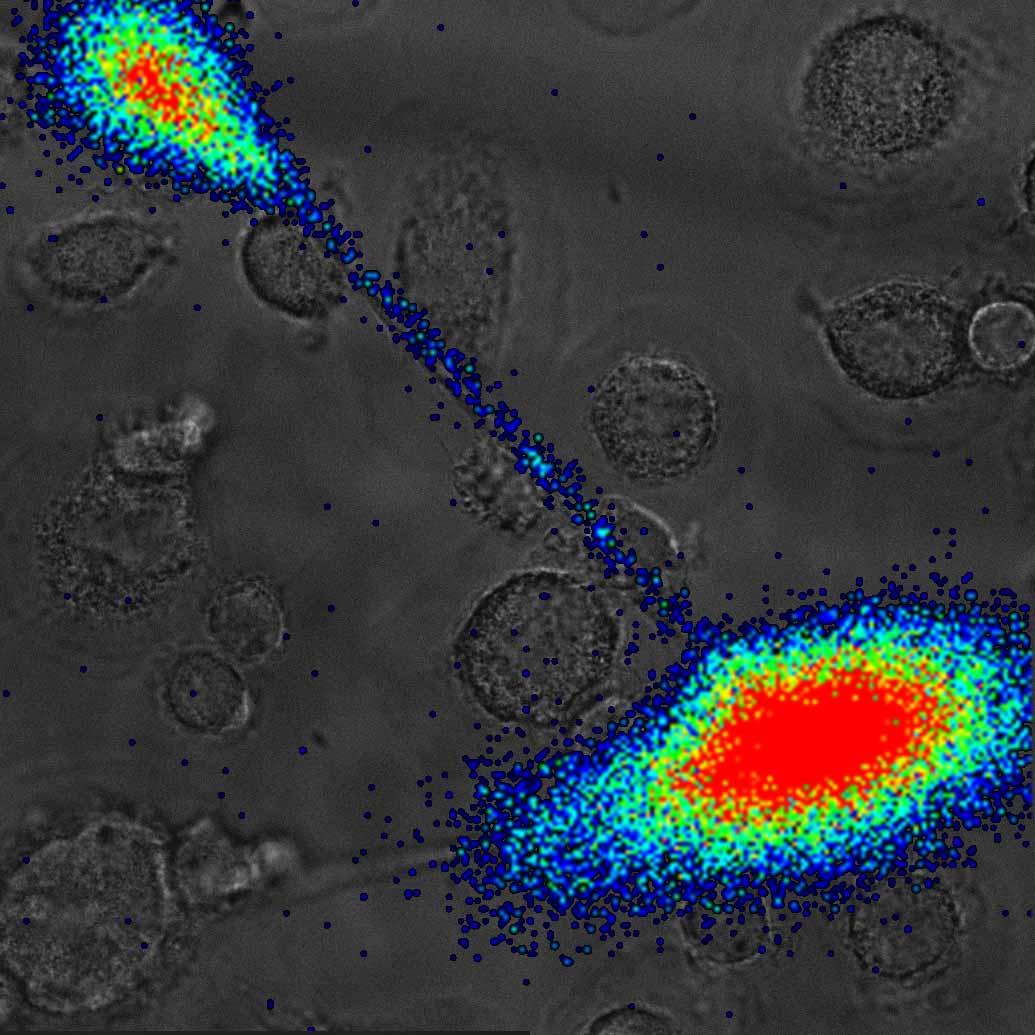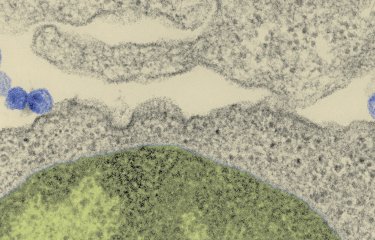Scientists from the Institut Pasteur and Inserm have identified several proteins in humans as potential new therapeutic targets for treating the AIDS virus. These proteins are part of a complex cellular mechanism that blocks the virus replication in cells called macrophages. The discovery of this mechanism and the proteins involved gives scientists a solid theoretical basis for developing new therapeutic strategies to be used alongside anti-retroviral treatments currently in use. This research was published online September 30, 2013 by the scientific journal Proceedings of the National Academy of Sciences.
Press release
Paris, October 1, 2013

The scientists have identified the key cellular proteins involved in a mechanism that blocks the first steps of HIV replication within macrophages. The process implicates a protein, called p21, which triggers a cascade of events that significantly reduces the level of key molecules used for DNA synthesis. Since HIV needs these molecules to produce its own genetic material its replication is thus shut down.
The three proteins involved in the mechanism discovered by the scientists represent potential targets for the development of therapeutic strategies to limit the virus spread within the body. These strategies could be used to complement current anti-retroviral therapies, which have only limited effects on viral replication in macrophages.
This study received financial support from the French research campaign, Sidaction.
--
Illustration - Copyright Institut Pasteur
Caption – Bioluminescence shows macrophages infected with HIV-1.
Source
p21-mediated RNR2 repression restricts HIV-1 replication in macrophages by inhibiting dNTP biosynthesis pathway, Proceedings of the National Academy of Sciences, september 30.
Awatef Allouch (1), Annie Davida (1), Sarah M. Amie (2), Hichem Lahouassa (3), Loïc Chartier (4), Florence Margottin-Goguet (3,5,6), Françoise Barré-Sinoussi (1,7), Baek Kim (2,8), Asier Saez-Cirion (1), and Gianfranco Pancino (1,7).
(1) Unité de Régulation des Infections Rétrovirales, Institut Pasteur, Paris, France;
(2) Center for Drug Discovery, Department of Pediatrics, Emory University, Atlanta, GA;
(3) Institut National de la Santé et de la Recherche Médicale, Unité 1016, Institut Cochin, Paris, France;
(4)Unité de Recherche et d’Expertise Epidémiologie des Maladies Emergentes, Institut Pasteur, Paris, France;
(5) Centre National de la Recherche Scientifique, Unité Mixte de Recherche 8104, Paris, France;
(6) Université Paris Descartes, Paris, France;
(7) Institut National de la Santé et de la Recherche Médicale, Paris, France;
(8) College of Pharmacy, Kyung. Hee University, Seoul, South Korea
Contacts
Service de presse de l’Institut Pasteur
Jérémy Lescène - Jeremy.lescene@pasteur.fr - +33 (0)1 45 68 81 01
Nadine Peyrolo - nadine.peyrolo@pasteur.fr - +33 (0)1 45 68 81 47




